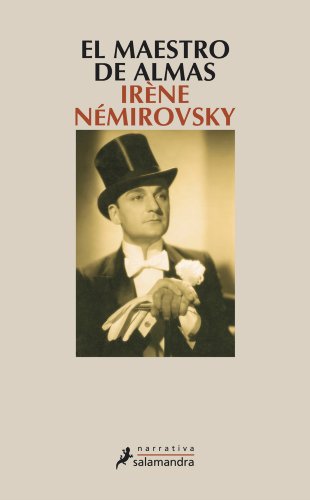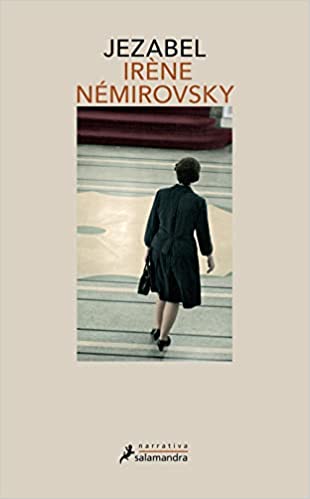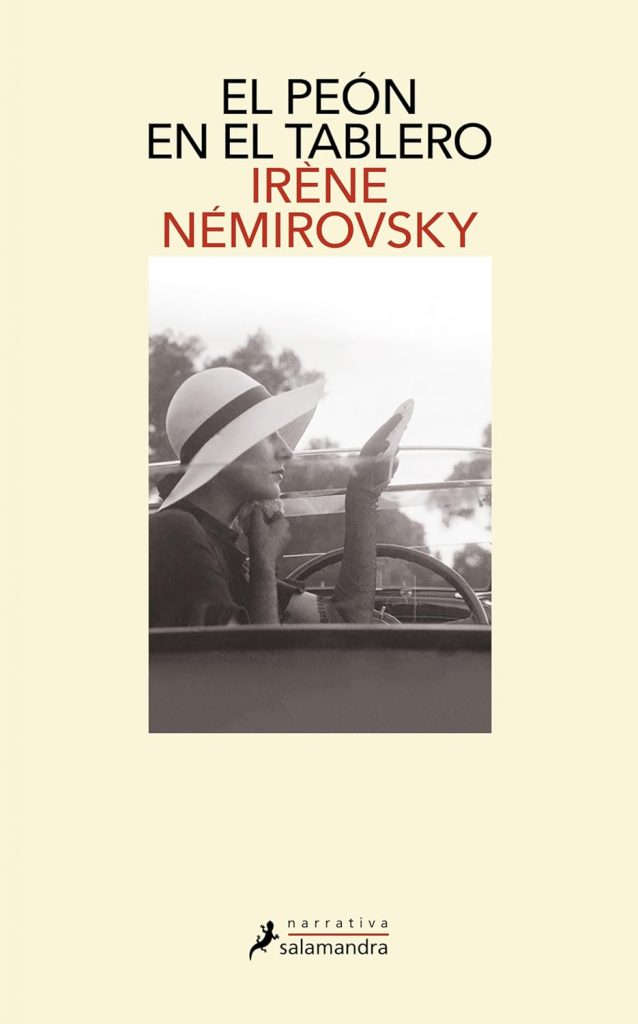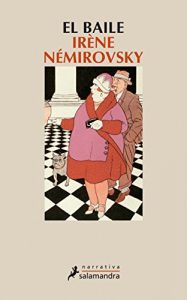Europe in the first half of the XNUMXth century became the worst-case scenario for a Jewish family like that of Irene Nemirovsky. Between exile and the perpetual flight from hatred, the will to survive always made its way. Even in the case of the Némirovskys, who were not even considered to be the normal family that any child longed for.
Detachment and inattention, especially on the part of her mother, marked a first existence in which Irène had to learn, on her own initiative, even the different languages of the countries they passed through in their diaspora, updated to the times of Hitler.
You can never think of a poetic justice of the transcendence of the work with respect to the author. It is clear that the horrors that Irène had to go through are not closed at all with the brilliance of her narrated testimony on many occasions between the biographical and the fictional.
But that work, which has come to this day, does serve another type of justice, that of the memory of the ominous, of the cruelty that was born in the Nazi occupation but that extended into the immorality unleashed as a mad inertia. Man is a wolf to man, as Hobbes would say. And in the middle of a conflict, there are as many wolves as there are souls invaded by fear.
Top 3 recommended books by Irène Némirovsky
the master of souls
Everything has a more complete vision from the grotesque or the hilarious. Because History tells of mediocrities, while extravagances end up revealing hidden realities. The old desires of human beings in society, the wet dreams of growth or passions... In this book we meet characters that are very true in their complex psyche, in their contradictions and paradoxical attitudes. The overall mosaic is an idyllic Parisian city. But behind her the shadows of humanity move...
Dario Asfar, a young doctor originally from Crimea, arrives in Nice accompanied by his wife and his newborn son. Tormented by debt, Darío fights desperately to gain a clientele, but his Levantine origin only inspires distrust and rejection. The precarious situation of his family then pushes him to undertake the only path offered to him to escape misery: taking advantage of the growing popularity of psychoanalysis, Darío becomes an improvised therapist, a kind of charlatan willing to offer the rich bourgeois the peace of mind and the happiness they long for. However, the long-awaited success and fortune will have unexpected consequences for him.
Némirovsky's light stroke describes with relentless lucidity the Paris of the XNUMXs, where powerful lords and elegant women of the world coexist with a court of freeloaders, needy people and scoundrels who swarm the city, forming a world of a thousand fascinating faces.
French suite
An unfinished work like this has the particular claim of what remains to be said. Even more so considering that the pages were left unwritten due to the author's last trip to the Auschwitz death camp.
But still unfinished and recovered for the cause more than 60 years later (or perhaps precisely because of the reappearance of such a relevant testimony), this novel of the horrors of the Nazi occupation of France, at the center of which is the author's own character . Because she was part of that varied bourgeoisie of advanced Parisian society.
Until the French state, in a panic after bombings aimed at total annihilation, agreed to the free persecution of Jews and other Nazi targets in its final solution.
Precisely there, at that moment when society is divided in two between the saved and the condemned by the whim of the Nazi regime, the human is presented to us in all its pettiness.
The narrative acquires a chilling tinge when considering that Irène herself would be splattered by the persecution and that she only had months, weeks or days to finish sentenced in the concentration camp.
The semblances of the betrayals between those who were previously friends or associates. The occupation brought out the worst in everyone. It is horrifying how even Paris also becomes a free space for hunting Jews.
All Europe yielded, through the terror of the vanquished, to this insane plan of the pure races. A reading of the two parts in which the work was skewed, which precisely because of that violent end awakens even more the fidelity of what is narrated as the crudest of testimonies.
Jezebel
A great psychological novel. A story that delves into that taste for that kind of vivisection of the most personal plot of social icons.
But from the deepest prism we can imagine. Gladys and her disturbing magnetism for other "good" women. Gladys and her existence made liquor drunk to enjoy from oblivion.
When everything human was lost, it only remains to reinvent itself without prejudice. And Gladys is that woman remade from her own pieces, unable to adhere to moral standards that once only led her to doom. But now the eccentric Gladys faces a murder charge.
The body of her young lover appeared lifeless shortly after being with her. Paris against Gladys. Or a taste for carrion. Everyone wants to know everything about Gladys.
And as the views of the trial go by in that X-ray of the murderer's motives, that past that Gladys always wanted to forget is discovered. Carnal love with the boy hides many secrets about Gladys's life but also about the reality of all those who face the case from the notion of "normality" that we all get dressed from home.
Other recommended books by Irene Nemirovsky
The pawn on the board
The pawn does not always know that, upon reaching the other extreme, he could be reincarnated (or remade) into whoever he wanted. And the truth is that every worker should always keep that horizon in mind. Even more so when it seems most impossible, faced with that nemesis that is another pawn that prevents the next step forward. Few kings know that they can end up being pawns if they remain at the back of the board, without even castleping with the rook.
Son of a steel magnate whose investments have collapsed, Christophe Bohun, a man without ambitions, hopes or desires, works at an International News Agency and lives with his dying father, his wife, his lover and his son, surrounded by a ruined greatness and afflicted by deep malaise. Along with the vague memory of a woman he once loved, his only pleasure is the sense of freedom that his car provides.
When he is forced to give it up, he suddenly becomes aware of the "deep and incomprehensible grief" that has overwhelmed him for so long. However, when his father dies, Christophe finds a sealed envelope that could become a potential weapon to shake him out of his gloomy slumber.
The dance
One of the first novels of the author. A story that revolves around a protagonist and an instant. Antoinette cannot enjoy the dance prepared by her family to earn that social prestige that so far her money has not reached.
We are located in a Paris of 1930 whose light the author paints with a precious narrative, between the lyrical and the pictorial. The proposal is short and simple.
It is only a matter of following little Antoinette in her wayward action towards maturity, in her affront to her mother and to the world. The Kampf are as excited as they are nervous about the arrival of the dance with which to entertain the most recognized characters of the French capital.
But Antoinette is going to ride her in the smartest way. And so he will be able to expose a mother as rigid as she is impertinent, as cruel as she is really disinterested in her daughter's education.
A little novel like a little jewel to read and enjoy that social setting of fatwas and glories and miseries easily manifested behind the tinsel.






Molim Vas lijepo,spisak Ireninih knjiga prevedenih na hrvatski!!!